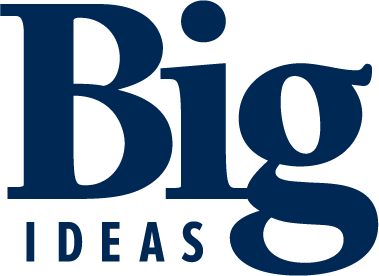20th Annual Big Bang! Competition Goes Virtual
By Trevor Stewart and Marianne Skoczek
In a rapidly evolving world, innovation and entrepreneurship are more essential than ever — and apply to all disciplines, from the life sciences and engineering to the humanities and social sciences.
This breadth of innovation was on full display at the 20th annual Big Bang! Business Competition, where teams’ companies and products spanned food and agriculture, energy, technology and health.
StarBio, a team of UC Davis graduate students, were the big winners of the night, capturing both the $20,000 first prize and the $10,000 Health Sector Award.
The new venture — led by biochemistry and molecular medicine doctoral students Shabnam Jafari and Diedra Shorty along with Teri Slack, an MBA student at the GSM — developed a diagnostic method that quickly and accurately identifies ischemic stroke patients. In a medical emergency where speed is critical, the Rapid Homogenous Point-of-Care Evaluation (HoPE) reduces assessment from hours to minutes to improve time-to-treatment and patient outcomes.
The $10,000 People’s Choice Award and the $3,000 Food, Ag & Health Innovation Award went to the company Pediafeed. The team of eight biomedical engineering undergraduates at Johns Hopkins University is developing a novel pediatric feeding tube that features secure retention and easy insertion/removal, reduces displacement and provides children with a reliable method of assisted feeding.
The best of the best
Organized by the Mike and Renee Child Institute for Innovation and Entrepreneurship, the competition has helped start or grow business ventures for two decades through the workshops, mentoring, networking opportunities, and the main event. The Child Institute is a Center for Excellence at the Graduate School of Management.
Sixteen finalists—out of a record 113 teams in this year’s competition—pitched their ventures before six judges in a two-day, 11.5-hour marathon judging session conducted via Zoom. Judges considered the teams’ integrated strategy, steps toward implementation and market opportunity to determine prize winners.
Teams presented their innovative ideas, ranging from converting Solo cups into wearable fabric, turning alcoholic beer into a non-alcoholic beverage, connecting online shoppers to offline local businesses and offering myriad telehealth options for patients.
“The mindset we teach around the Big Bang! competition is just as applicable to somebody looking to drive a change initiative inside a large company,” said Andrew Hargadon, champion of the Building the Entrepreneurial Mindset initiative. “Build a network, learn from each other and then create positive change. Contestants learn fundamental skills to innovation, and we see this competition as another opportunity to educate.”
The show went on
This year brought a new array of challenges with the COVID-19 pandemic, which forced the organizers at the Mike and Renee Child Institute for Innovation and Entrepreneurship to pivot to a virtual final round and awards ceremony.
The awards show streamed this year via Facebook Live, and Big Bang! Program Coordinator Karen Harding-Davis said the staff practiced what they preached by using networking to help them prepare.
“During a call with colleagues at other universities, someone shared they were also moving their event online,” Harding-Davis said. “We chatted with them after their event occurred, and they were kind enough to share learnings and logistics that we could apply to the Big Bang! Awards Show.”
Harding-Davis added how proud she was of the staff, judges and participants in the competition — the flexibility and work put in to ensure the show would go on was inspiring.
Lessons learned
Harding-Davis said the 48-hour window for online voting, with links to the teams’ pitch videos on YouTube, drove considerable traffic to the Big Bang! website.
She noted that there was a significant uptick in social media engagement on the institute’s channels, as well as from the university social media accounts of non–UC Davis teams and their networks as well, which was an added bonus.
“We received more than 10,000 votes for the People’s Choice Award,” Harding-Davis said. “The ripple effect of using social media and doing an exclusively virtual event has produced some positive learnings for us to consider for upcoming years.”
For a full list and more information about all 16 finalists, visit the Big Bang Competition page on the institute’s website.
